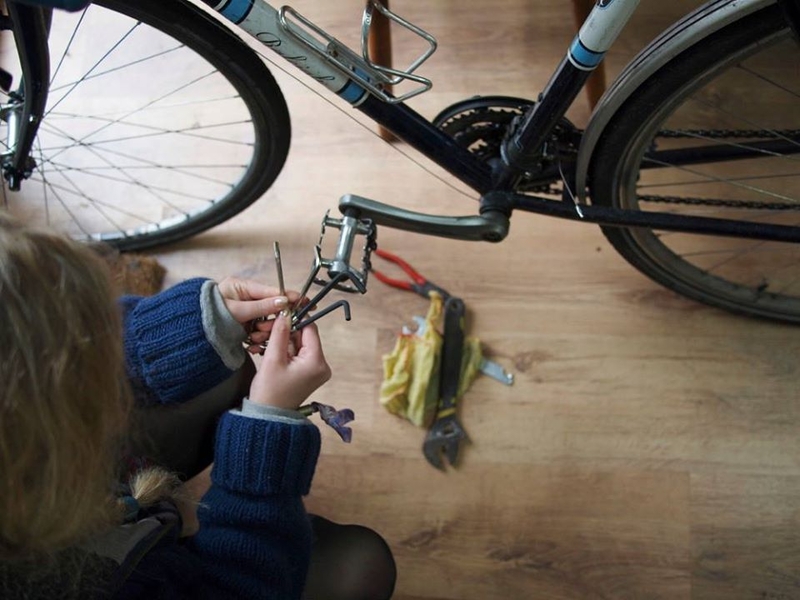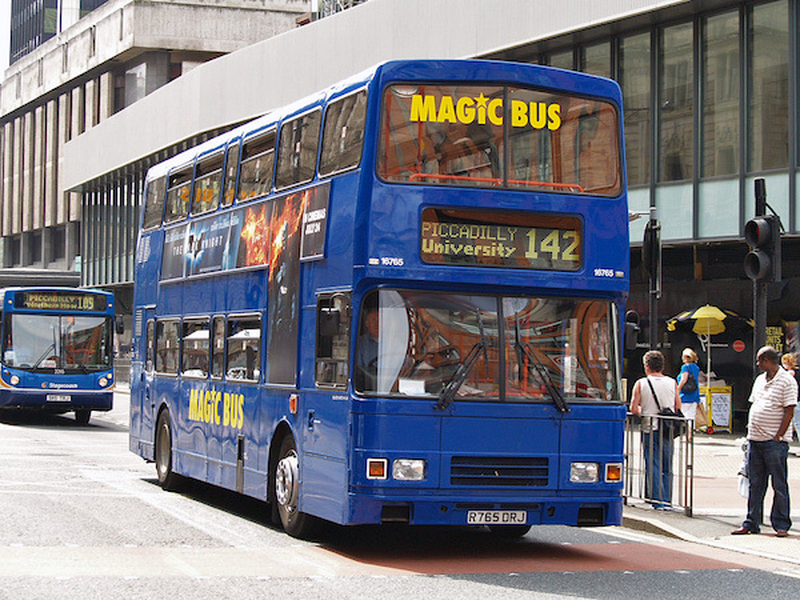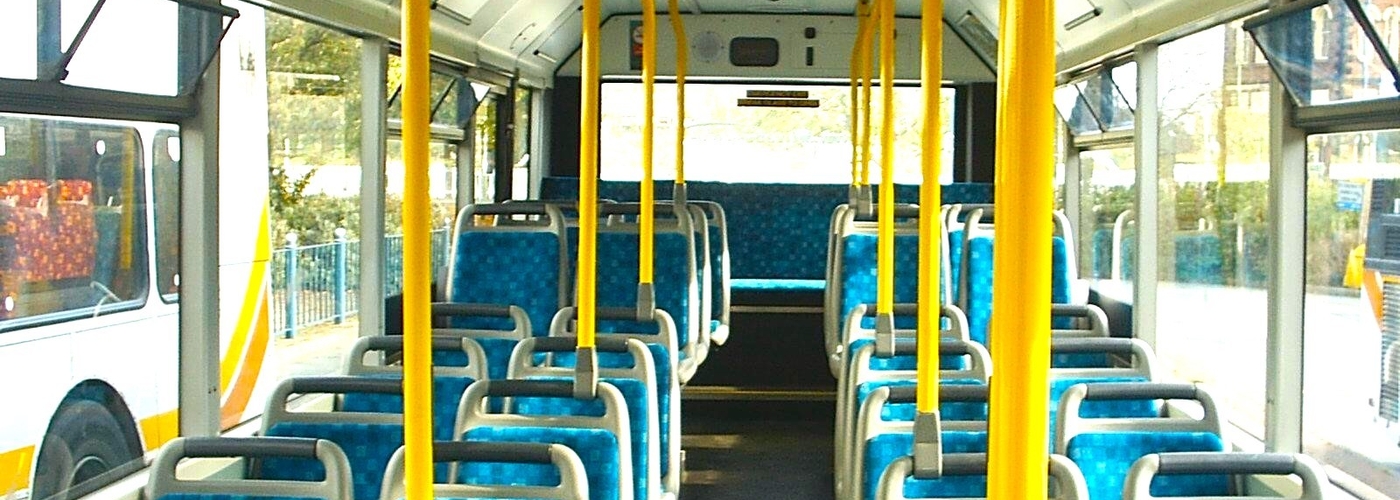Should the city's public transport be free?
When the proposals for bus franchising were originally launched, corona was just the name of a beer. Fast-forward almost two years and the landscape looks a lot different for public transport. After years of being prised gently from our cars with targeted messaging, covid sent us scuttling back into our metal shells like vulnerable hermit crabs with driving licenses.
People here deserve a transport network where you can seamlessly travel across our city-region on buses, trams and trains - without spending a fortune each time
While the year of living quietly might make it seem inevitable that we will all want to stick to our safe areas and work from home, in fact, Manchester has relatively low work from home rates. Public transport is still an absolute necessity for some of our most valuable workers and, even outside of work commutes, it opens up a host of opportunities in entertainment, leisure and education that most people are itching to get back to when it is safe.
However, Manchester's public transport is not great. In fact, transport is such an issue that Andy Burnham based the majority of his campaign around the issue of improving public transport – and with 67% of the vote, you could say the electorate (or at least those that turned out) agree with him that this is a priority issue.
When not politicking, Mr Burnham is also busy producing content – as exemplified by a video that shows the Mayor making his way from Middleton to Media City (and drinking not one but two takeaway coffees while he was at it). The video was so popular, in fact, that he’s promised to do a few more. It’s this kind of red-hot content that Only Fans was designed for - if he fancies making a few extra bob to pay for those coffees.
This morning Andy took a bus and tram from Middleton to MediaCity to show where Greater Manchester’s public transport system is falling short and why we need to deliver a fully-integrated, affordable and accessible network.
Here’s what he found #BeeNetwork #GreaterManchester pic.twitter.com/VEI65YsP6N
— Mayor of Greater Manchester (@MayorofGM) May 10, 2021
On a serious note though, it’s essential that Burnham is seen to be getting to work on his campaign promises straight away. To this end, the Mayor chaired the Bee Network delivery board meeting on the first official working day of his second term. The Bee Network is now the name for the whole of the Manchester transport network, though active travel fans will recognise the name from its earlier incarnation as the network of walking and cycling routes overseen by Chris Boardman.
Transport plans include extending the Metrolink to Middleton, a bike hire scheme, increasing electric vehicle charging points and accelerating the bus franchising scheme to be complete by 2024 as well as rebranding the network with a funky black and yellow livery. Mr Burnham said: "People here deserve a transport network where you can seamlessly travel across our city-region on buses, trams and trains - without spending a fortune each time. We will deliver this alongside hundreds of new electric vehicle charging points, a bike hire scheme and world-class cycling and walking corridors which will make everyday trips to school, to work and to the shops safe, easy and fun. This will benefit our people and our planet as we step up our plans for carbon neutrality."
So, what’s the problem with public transport in Manchester?
This one needs barely any explaining. Public transport in Manchester is suffering from issues. Like, major baggage. Buses are unreliable and disproportionately expensive. Some routes are underserved while others are overcrowded. The tram needs to serve more regions while not getting any more expensive. Cycling is still dangerous and all of the above do not integrate in a seamless, affordable whole.
Historically, advances in a public transport system are intertwined with the development of a city itself. If Greater Manchester’s public transport system isn’t working then that lack is strangling future growth. Public transport connects people to jobs and customers to business so thriving economies depend upon it.
Yes, private cars can do that too, but they lead to congestion and pollution and a whole host of social knock-ons that eventually make a grab for the public purse. But we can only persuade people to leave their cars at home if public transport is a cheaper and more convenient alternative.

The London-style solution
One thing Burnham watchers may have got a little sick of during the election is the promise of a “London-style" transport system. Anyone who has regularly used public transport in London will know it’s not the utopian ideal some make it out to be.
The price comparison between London and Manchester is not as simple as either side of the debate would have you believe either. A single bus journey (actually as many bus journeys as you can manage in an hour and a half) in London costs £1.55 and can be integrated into the daily or weekly Travelcard price cap. However, if you look at the weekly Travelcard available in London and compare it to weekly pass for a direct route that always uses the same bus operator in Manchester, the value here may not seem too bad (though that is a lot of restriction compared to the free-ranging London system). London fares do win out if you are making many changes, using different modes of transport a lot and your route isn’t that predictable day to day. Factor in the cost of transport as relative to wages and London’s not-really-that-cheap transport is usually better value than Manchester’s overall but a genuine like-for-like comparison is difficult.
However, the London Bus network is subsidised heavily, especially when the profit from tube fares is taken into account. According to The Evening Standard, Transport for London ran at £742 million deficit in 2019/2, largely due to the £722 million loss made by the bus network. GMCA has estimated the cost of moving to franchise to be £134 million over five years, significantly less than the TfL deficit.
Something Londoners do have is a different attitude towards getting about. Car ownership in the capital is relatively low and steadily decreasing, not only because of the various costs and inconveniences but also because owning a car is not considered the default option as it is in other areas. Cars are considered as a mode of travel to work for only 29 percent of Londoners, compared to the English average of 67 percent. Part of this is to do with more reliable public transport but another, less measurable factor is that for Londoners it is just socially more acceptable to travel everywhere by public transport.
This attitudinal shift is something the Mayor tried to capture with Our Pass, free bus travel for 18-16-year-olds. By encouraging young people to embed the habit of using public transport in such a way that they carry it on through their life, we will breed a generation of natural-born bus users, goes the thinking. Great, but we’ll only see if this has worked in many years’ time.
Attitudes and preferences, especially of young people, will decide the future of transport. The Uberisation of transport now means that the convenience of getting from point to point will be a strong motivating factor for people used to the convenience of the ride-hailing app. Even if people decide not to own their own cars in the future, that doesn’t necessarily mean that buses and trams will pick up all those extra passengers. Instead, whoever owns a large fleet of driverless cars will be scooping up the profit.
Wholesale attitude shifts are needed now and while providing a better quality service is certainly part of that, Burnham and co could go even further.

Going further - free public transport?
One radical suggestion that has been bandied about is to follow other cities in making public transport free - at least for a while. The state of Massachusetts made its public transport free for two years, beginning in 2019, and almost immediately saw bus use rise by 24 percent (amazing for an American city) while a similar programme in Dunkirk has seen a rise of 85 percent. This gets people to break up with their car habit for long enough that when charges come back in, public transport seems worth paying for.
The main argument against the idea is the burden of cost. If passengers do not pay at the point of use then naturally the full burden of paying for public transport falls on tax payers. This isn’t necessarily the devastating argument some people think it is. For a start, bus passengers and tax-payers are very often the same people so the cost is merely shifted. Even for the percentage of people who would never use a bus, sometimes the point of tax is to fund a public good that you yourself do not use, especially if it contributes to secondary goods such a cleaner air, quieter streets, more economic productivity and less strain on the healthcare system.
On a social level, bad public transport disproportionately affects people with lower incomes, people with disabilities and young people. An affordable, reliable public transport system is an important part of the levelling-up agenda and what could be more affordable to the individual than free at the point of use?
A more targeted argument against free transport comes from the human tendency to not value what what they do not have to pay for, at least directly. Some cities that have trialled free transport have reported that buses are often vandalised. According to a review of a trial in Austin, Texas: “Larger transit systems that offered free fares suffered dramatic rates of vandalism, graffiti, and rowdiness, causing numerous negative consequences. Vehicle maintenance and security costs escalated due to the need for repairs associated with abuse from passengers.”
Perhaps the solution is to part-fund the cost of public transport in a way that encourages buy-in from the passenger. Give every resident of Greater Manchester a substantial transport voucher which they can spend on individual trips or to put towards monthly or yearly passes, whichever suits them best. This strongly encourages public transport use but makes it less likely that they will treat the public transport network with disrespect and retains an element of choice.
Would you ride a driverless bus?
Stagecoach has been trialling the technology at its test centre in Manchester pic.twitter.com/bvurs1zRK9
— PA Media (@PA) March 18, 2019
So, as well as money (of course), the secret ingredient to making Manchester's public transport great is encouraging attitude change. Put simply, we need to think of ourselves as a city of bus and tram users rather than car drivers. While focusing on details such as the new livery may seem superfluous, it could actual be the last step in making it all work. The cute Bee name and yellow and black design may be more important than we think in changing hearts and minds about bus travel. Sure, no one is going to buzz to work on an expensive and inefficient bus, but blend a little civic pride with ease and convenience and the mayor might just pull it off after all.
What’s in the mayor’s plan?
· Plans for immediate discussions with Government to seek support for powers and funding to accelerate bus franchising so that all parts of Greater Manchester have better buses, integrated with Metrolink by May 2024 – a year earlier than originally planned
· Delivering 95 new electric vehicle charging points by the end of this year, with plans for a further 200 charging points next year, in partnership with government
· A pledge to complete 100km of cycling and walking routes by the end of the year
· A new Greater Manchester Bike Hire scheme to launch in November this year, with the preferred delivery partner unveiled in June
· Opening negotiations with Network Rail to agree a plans to make all rail stations in the city region accessible by 2025, or to give Greater Manchester the funding and power to do it















